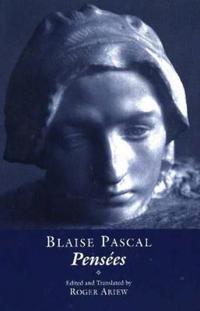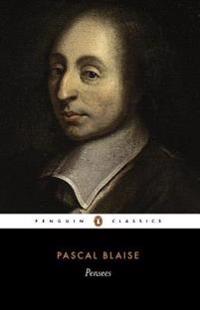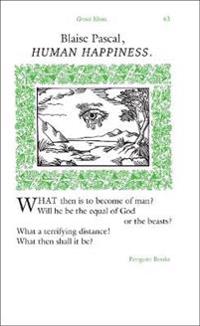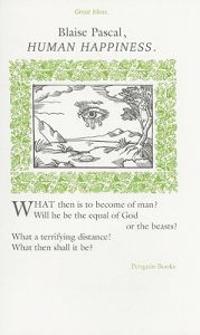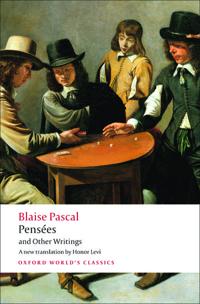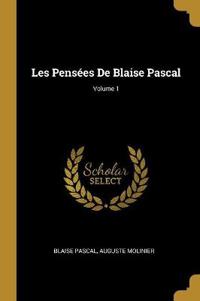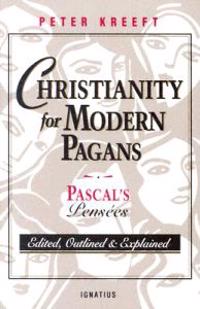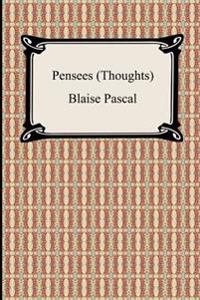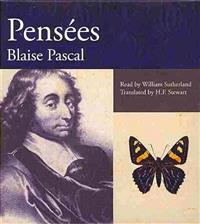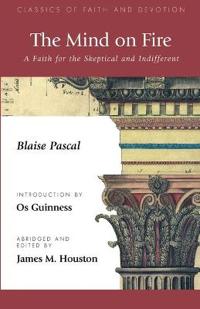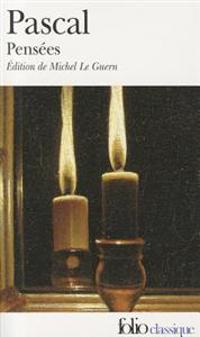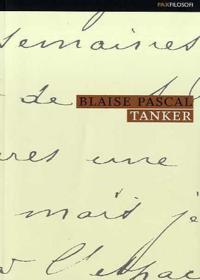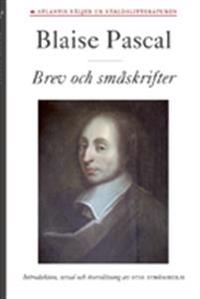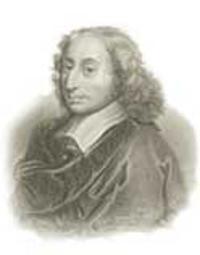Pascal's Apology for Religion: Extracted from the Pensees (Pocket)
avBlaise Pascal
ISBN: 9781107683877 - UTGIVEN: 2013-03-28This book gathers together a series of selections in French which illustrate Pascal's Christian faith and thoughts on the relationship between man and God.[...]
Pensees (Inbunden)
avBlaise Pascal, Roger Ariew, Blaise Pascal
ISBN: 9780872207189 - UTGIVEN: 2005-03Roger Ariew masterfully renders the oddities of seventeenth-century French vocabulary and syntax in this eloquent and philosophically astute translation -- the first complete English translation based on the Sellier edition of Pascal's manuscript, widely accepted as the version closest to what Pasca[...]
Pensees (Storpocket)
avBlaise Pascal
ISBN: 9780140446456 - UTGIVEN: 199507Blaise Pascal, the precociously brilliant contemporary of Descartes, was a gifted mathematician and physicist, but it is his unfinished apologia for the Christian religion upon which his reputation now rests. "The Pensees" is a collection of philosohical fragments, notes and essays in which Pascal e[...]
Human Happiness (Pocket)
avBlaise Pascal
ISBN: 9780141036793 - UTGIVEN: 200808Created by the seventeenth-century philosopher and mathematician Pascal, the essays contained in "Human Happiness" are a curiously optimistic look at whether humans can ever find satisfaction and real joy in life - or whether a belief in God is a wise gamble at best. Throughout history, some books h[...]
Pensees and Other Writings (Pocket)
avBlaise Pascal, Honor Levi, Anthony Levi
ISBN: 9780199540365 - UTGIVEN: 200807For much of his life Pascal (1623-62) worked on a magnum opus which was never published in its intended form. Instead, he left a mass of fragments, some of them meant as notes for the Apologie. These were to become known as the Pensees, and they occupy a crucial place in Western philosophy and relig[...]
Blaise Pascal on Duplicity, Sin, and the Fall (Inbunden)
ISBN: 9780199656363 - UTGIVEN: 2013-07Blaise Pascal's account of the cognitive consequences of the Fall is clearly set out by William Wood in the first book on Pascal's theology to appear in English in more than forty years. Wood's central claim is that for Pascal, the Fall is a fall into duplicity. Pascal holds that as fallen selves in[...]
Christianity for Modern Pagans (Pocket)
avPeter Kreeft, Peter Kreeft, Blaise Pascal
ISBN: 9780898704525 - UTGIVEN: 199310Lettres Ecrites a Un Provincial: (I, IV, V, XIII) (Pocket)
avBlaise Pascal
ISBN: 9781107633605 - UTGIVEN: 2013-02-07First published in 1923, this volume contains a selection of Pascal's Lettres ecrites a un provincial.[...]
Entretien Avec M. de Saci Sur Epictete Et Montaigne (Pocket)
avBlaise Pascal
ISBN: 9781107665453 - UTGIVEN: 2013-02-07This volume contains the full text of Pascal's Entretien avec M. de Saci sur Epictete et Montaigne in the original French.[...]
Pensees (Thoughts) (Häftad)
avBlaise Pascal
ISBN: 9781420926101 - UTGIVEN: 2005-01From the notes for Pascal's contemplated "Apology for the Christian Religion" the Port-Royalists compiled and edited the book known as his "Pensies" or "Thoughts." The early texts were much tampered with, and the material has been frequently rearranged; but now at last it is possible to read these f[...]
Blaise Pascal
ISBN: 9781780237213 - UTGIVEN: 2017-05Blaise Pascal had an extraordinary life and career. Renowned as a child prodigy, he engaged with the intellectual ferment surrounding the mathematician Father Mersenne before turning to his scientific experiments, his work on mathematics and construction of mechanical calculating machines, his corre[...]
Pensees (Häftad)
avBlaise Pascal
ISBN: 9782070316250 - UTGIVEN: 197801One of the world's great minds ruminates on God, the world and reason in jewel-like fragments of thought.[...]
Tanker (Pocket)
avBlaise Pascal
ISBN: 9788253029818 - UTGIVEN: 2007Blaise Pascals (1623-62) "Tanker" er skissene til et apologetisk skrift - et forsvar for kristendommens sannhet - rettet mot de tallrike fritenkerne i Pascals samtid. Den apologetiske sjanger har sine røtter tilbake til kristendommens første tider, men Pascals apologi skiller seg fra andre ved at [...]
Brev och småskrifter (Inbunden)
avBlaise Pascal
ISBN: 9789173535373 - UTGIVEN: 201205Blaise Pascal har alltsedan sin död varit en vattendelare i den europeiska och främst den franska idédebatten. Hans intellektuella prestationer - matematiska och naturvetenskapliga - är alltjämt en del av vår verklighet medan han på andra områden är en talesman för ett främmande folk. I d[...]
Tankar (Inbunden)
avBlaise Pascal
ISBN: 9789177422587 - UTGIVEN: 200612En volym med valda avsnitt ur 1600-talsgeniet Blaise Pascals bok Tankar - boken som fastän den kom till i största hast och aldrig blev färdigskriven ändå, av generation efter generation i hundratals år, har kallats den ultimata boken.[...]



